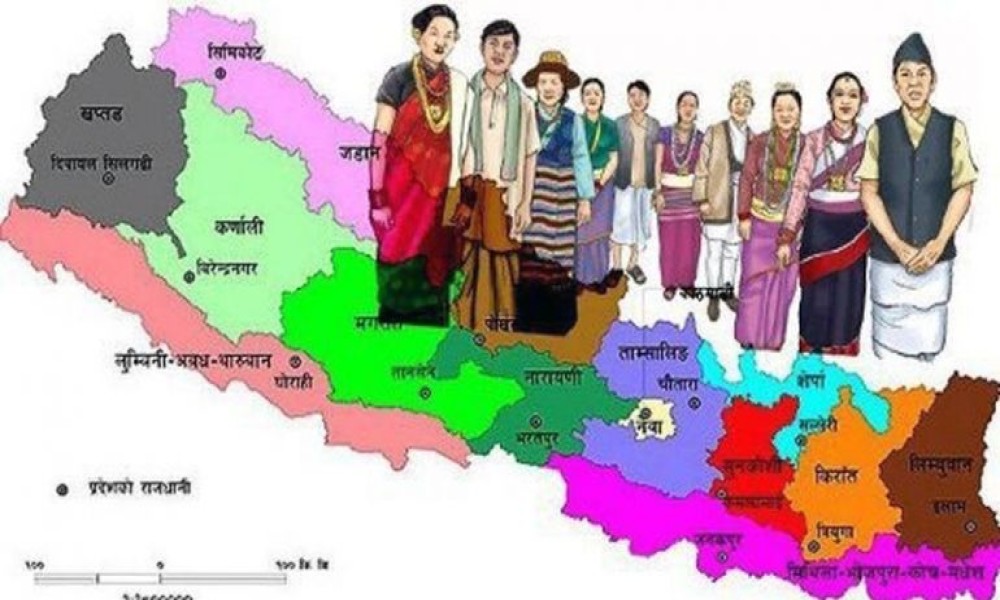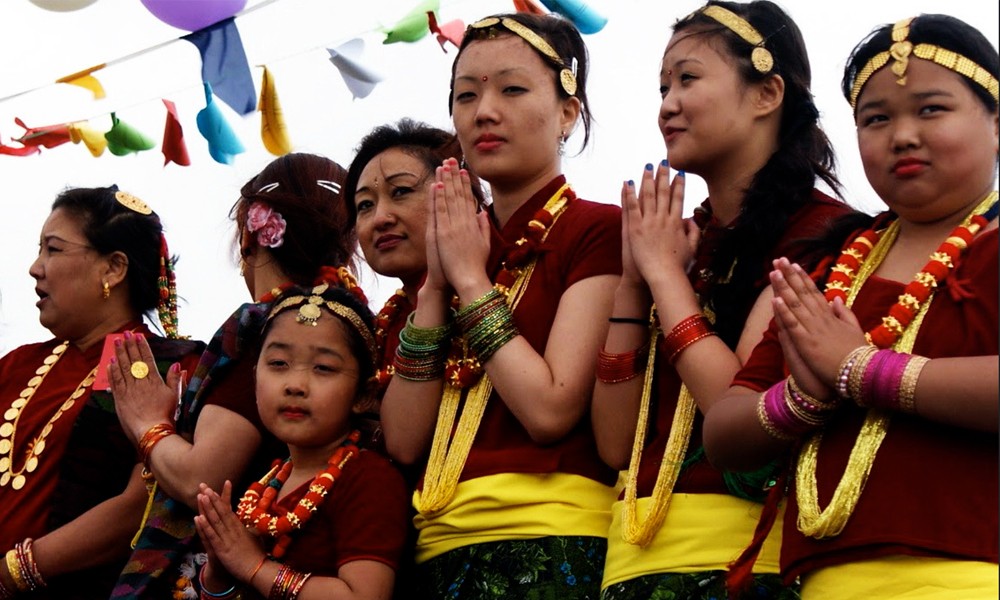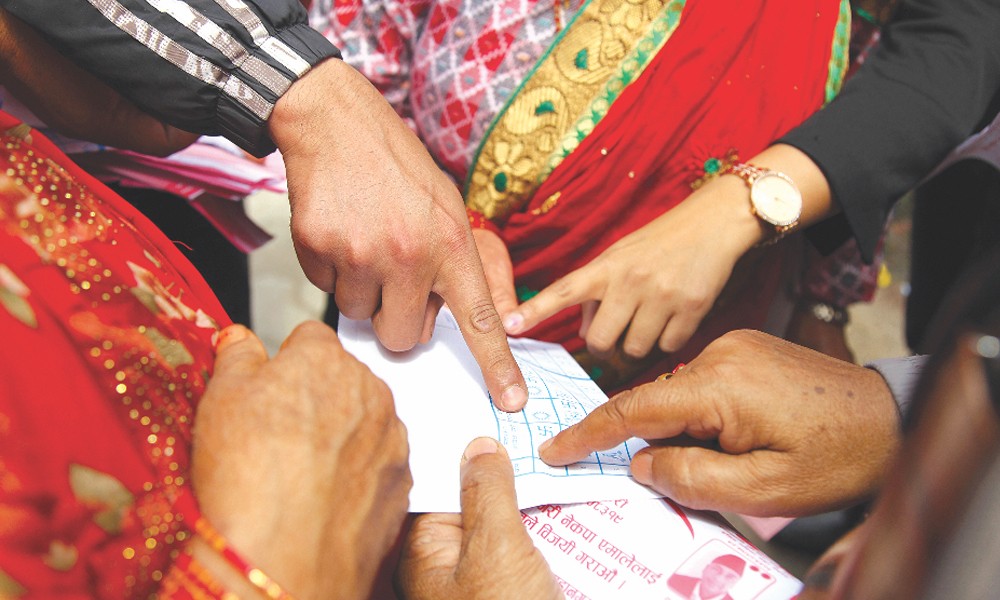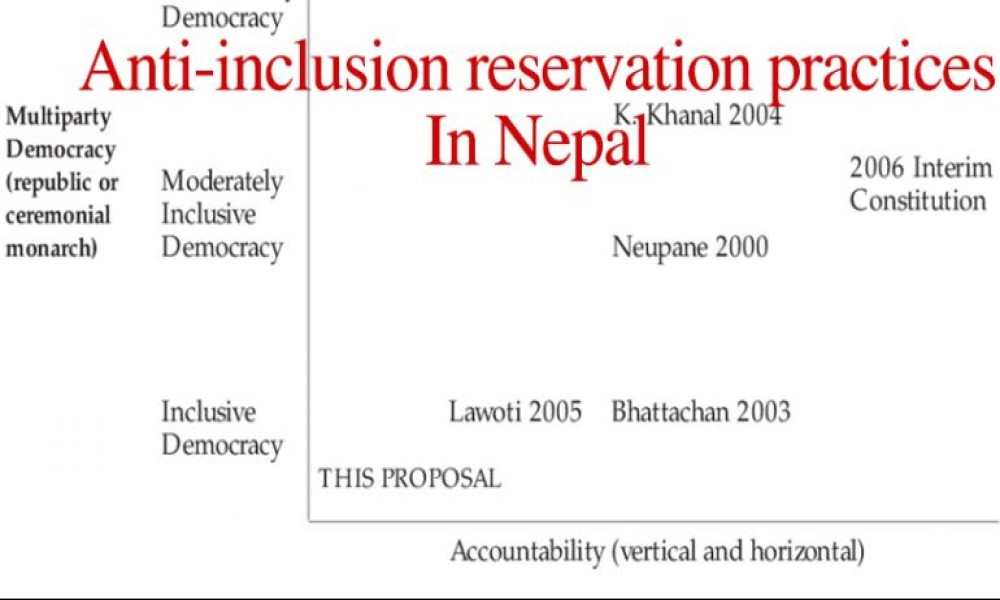Federalism is a way of sharing the state power equally so that no community or region lags behind others. It is the most effective form of power devolution. So delineation of federal units is the most important part in the process of federalism.
Many say Nepal's new constitution is progressive because it has institutionalized the achievements of the 2006 democracy movement, including federalism. But the way federal states have been carved out, it is easy to infer that our federalism is fake, and it is unlikely to ensure real power devolution.
In Nepal, federal provinces have been created in a way that the dominance of the privileged castes will remain at the center as well as the state level. So Nepal's federalism is yet another effort by the privileged communities to retain their power. It favors one privileged caste, and perpetuates discrimination against other marginalized ethnic communities.
Nepal's federalism is yet another effort by the privileged communities to retain their power. It favors one privileged caste, and perpetuates discrimination against other marginalized ethnic communities.
In India, federalism has distributed power among as many communities as possible. Of course, there is no federal state for the Muslim minority. But there is non-geographical federalism for Muslims and other religious minorities. Moreover, the Indian constitution has guaranteed that the lands traditionally occupied by Adivasi Janajatis cannot be seized from them. Has our constitution tried to address and mainstream ethnic minorities? So even in terms of federalism, our new constitution is not as progressive as India's.
My point is not that India's constitution is flawless. No constitution is perfect. And India's constitution is not an exception. But it would be wise to draw a comparison at a time when Kathmandu's propagandists are claiming that Nepal's constitution is better than India's. My point is: India's constitution was drafted half a century ago but it is still more inclusive than our constitution of the 21st century.
Nepal's constitution is certainly more progressive than the 1990 constitution. But it has failed to retain progressive elements of the interim constitution of 2007. The new constitution is pro-Bahuns and Chhetris, and it is nothing but a ploy by them to safeguard their own rights.
Nepal's constitution is certainly more progressive than the 1990 constitution. But it has failed to retain progressive elements of the interim constitution of 2007. The new constitution is pro-Bahuns and Chhetris, and it is nothing but a ploy by them to safeguard their own rights. No wonder that they were the ones who lit lamps to welcome the constitution. Some people from the marginalized communities also followed the suit, and it is not difficult to understand their motive. They want to eat whatever drops from the dinner table of the dominant castes.
In the last five decades, one constitution has survived only 10 years on an average. The new constitution was a seventh, and I am sure that we will not have to wait longer than 10 years to get the eighth. A constitution that was drafted without the participation of a signification section of the population will not be durable.










